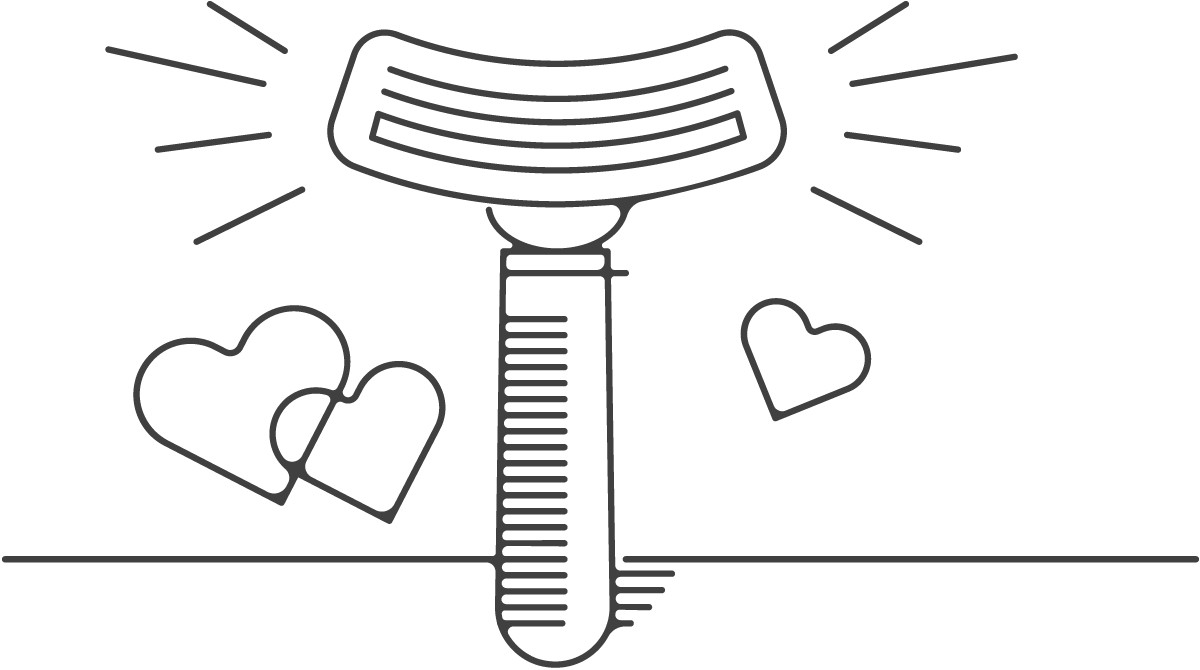Branding is the proverbial relationship between a business and its customer. So when that relationship turns sour, the customer may decide to date other brands and find new love.
In 2012, a small company called Dollar Shave Club entered the personal razor market space and built an online brand whose product line expanded over the years from razors and shaving needs, to all manner of male grooming products – even for areas best kept hidden. The brand was innovative and fresh in its approach and service, and personable to its audience. Its brand messaging was memorable, humorous, and relatable. The brand felt like a buddy you would go grab a beer with, and for a good 6 years since it first launched, I loved Dollar Shave Club.
I would look forward to my shipments, having a chuckle over some of the packaging text and even enjoy the subliminal bathroom reading they provided which covered on all manner of male hygiene topics. They would introduce a new product and I would trustingly add it to my next shipment box without question. When I needed to reach out to the company, I actually got a friendly human reply in a timely manner. The brand had personality, felt transparent, and was dependable. I was happy.
In 2016, Dollar Shave Club became a rare business “unicorn” when after only 4 years Unilever purchased the company for $1 billion dollars. While the effects of a global corporation takeover were not immediately evident to us (the customers), we should have foreseen the inevitable. In the years that followed, transparency in our relationship disappeared as customer support options became next to none. Shipment packaging was made more cost-effective and revised to exclude the fun messaging and reading material I used to get and looked forward to. By 2020, the brand had a complete visual makeover that was nothing like the visual brand I had found so endearing over the years. It was cold and impersonal, fit right in with everyone else on the shelf, and I felt like I could no longer relate to it. It was as if the brand was now trying to be attractive to someone else and no longer cared about me. When product shortages due to the pandemic arose, there were missed opportunities in how the brand could have communicated or informed us as to when products I depended on (like shampoo and conditioner) would be available again. This unfortunately was the beginning of our demise as I was given opportunities to have my needs met outside of the relationship.
It is now 2022, and I have divorced myself of “DSC” (as the brand now likes to be called) but am better off for it. Soon after, I was introduced to another brand that had just recently entered the razor marketplace. GoodFellows (yes, the in-house Target brand) caught my eye from across the aisle. It wasn’t like all of the rest of the brands – all vying for my attention but all offering the same thing. It focused on my immediate need of razors and was doing it in a way that was a bit more innovative and not like the rest of the Gilettes, Schlicks and Harrys out there. Simple things like a snap-on cover or a single trimmer-blade on the backside of the head brought added value to me as the consumer. Yes, this brand may just be a re-bound, but it has the potential to become a beautiful, life-long relationship.

As consumers, we go through our day as if we are walking around in a singles bar even though we are married and loyal to those meaningful brands we are in relationships with. We are constantly bombarded with invitations, bad pick-up lines, and brands just looking for one-night stands. And like any relationship, there is potential for a brand to slowly – and unintentionally – turn its relationship with the consumer into one that is closed-off, untrusting, and impersonal. This leaves a ripe opportunity for another brand to engage and live happily ever after.
As a business, remember that your brand as a whole is the evolving, continual relationship you have with your audience. Treat it like one and don’t mistreat it. The relationship is one to be carefully nurtured and revered because your audience never said “’til death do us part”.

